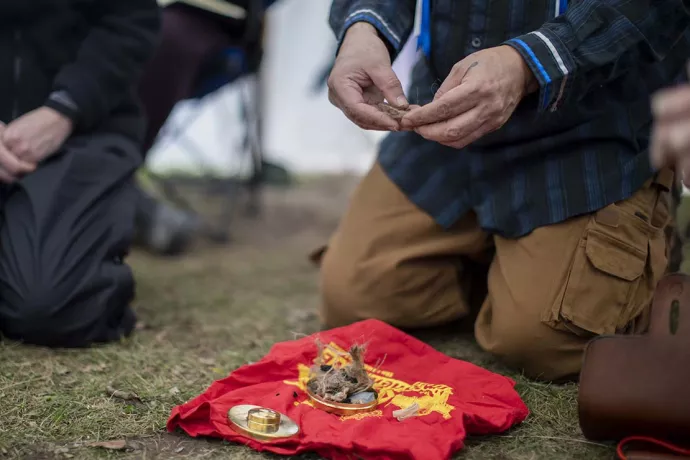
Recognizing National Indigenous Peoples Day
To the UTM community,
Today marks National Indigenous Peoples Day, recognized annually on 21 June on the summer solstice. For the past 25 years, after much informed advocacy from Indigenous peoples, the day has provided an opportunity to celebrate the diverse cultures of First Nation, Inuit and Métis communities; to highlight the impactful accomplishments of Indigenous peoples across all fields of activity; and to affirm an enduring commitment to learn with responsibility and act with reciprocity.
It also enables a truthful recognition of the historical and ongoing impact of Canadian settler colonialism, most recently brought into focus by the triggering news from Tk’emlúps te Secwépemc territory, where the remains of 215 Indigenous children were discovered on the grounds of Kamloops Residential School. The Canadian system of residential schools took more than 150,000 Indigenous children from their families and strove to destroy their cultures, their languages and their identities. The effects of this system persist today in pervasive structures of inequality and in intergenerational trauma that many Indigenous families continue to experience.
I continue to repeat this fact to underline an institutional commitment: the truth will always matter.
And so will the need to act on its basis. U of T has an established roadmap for change, with initiatives rooted in the Calls to Justice of the Final Report of the National Inquiry into Missing and Murdered Indigenous Women and Girls and in the Calls to Action of our response to the Truth and Reconciliation Commission: “Answering the Call: Wecheehetowin.” Today, and every day, I encourage our communities to enact the calls with intention grounded in the value of knowledge.
So, to that end, we might reviewing our institutional and national commitments to reconciliation; learn more about the histories and responsibilities entailed by the land on which we work; access resources on Indigenous languages; and register for U of T’s programs in Indigenous Cultural Competency Training, with sessions including Speaking Our Truths: The Journey Towards Reconciliation (Part 1 and Part 2), Reconciliation: Walking the Path of Indigenous Allyship, and Reflecting on Land Acknowledgements. We might also read books by Indigenous authors, in full recognition of truth, trauma and artistic brilliance: from Eden Robinson’s Monkey Beach to Katherena Vermette’s river woman, from Lee Maracle’s Ravensong to Thomas King’s 77 Fragments of a Familiar Ruin.
“Our literatures,” writes Daniel Heath Justice, professor of First Nations and Indigenous Studies, represent a “vital way that we have countered those forces of erasure and given shape to our own ways of being in the world.” “Fundamentally,” he continues, “they affirm Indigenous presence—and our present. That our nations do indeed have a vibrant present gives us hope that we’ll have a future, too.” To my Indigenous colleagues: I celebrate that vitality. To UTM’s non-Indigenous peoples: I encourage you to work in allyship for that future’s realization.
Alexandra Gillespie
Vice-President and Principal
University of Toronto Mississauga
